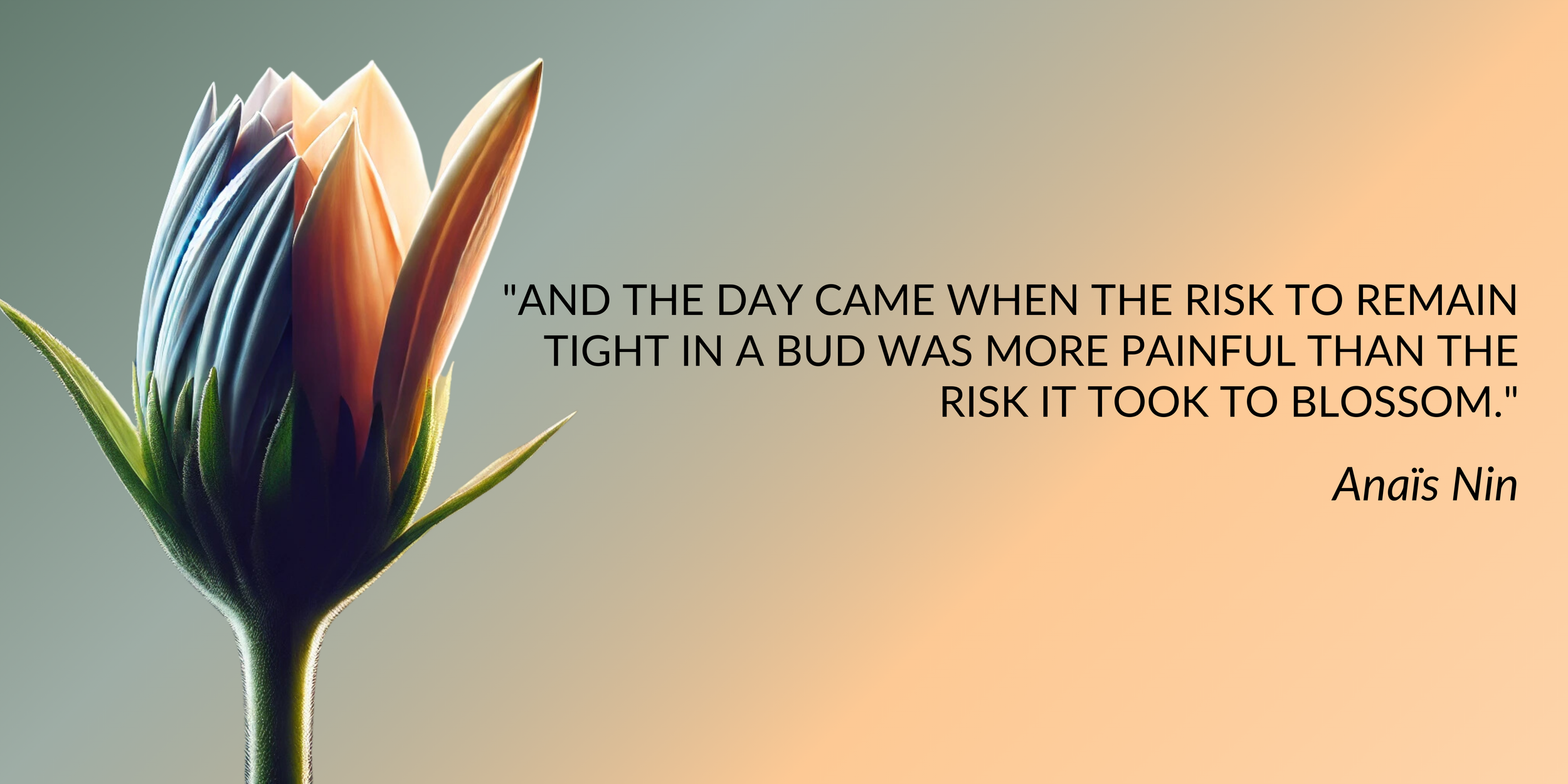Why self-abandonment might be the ultimate self-love.
I’ve been working with a lot of high-performing clients lately–
And while the goals are different, the moment is often the same:
They’re doing well.
They’re growing.
And they’re quietly hitting a breaking point.
Not because something’s wrong.
But because something old no longer fits.
And here’s what I see again and again:
The moment of discomfort isn’t the sign you’re off track.
It’s often the moment you’re becoming.
It’s the space between identities.
Between the comfort of the known… and the pull of what’s next.
It’s what Anaïs Nin meant when she wrote:
But blossoming comes at a cost.
And lately, I’ve been listening to a lot of Alan Watts.
One of the things he said recently stopped me in my tracks:
“The ultimate self-love is self-abandonment.”
At first, that felt completely untrue.
After all, I often talk about how we abandon ourselves–
By not listening to ourselves
By ignoring our needs.
By overriding our truth.
By outsourcing our worth.
But what Watts meant was this:
When we cling to ego…
When we over-identify with fixed versions of who we think we are…
We cut ourselves off from the fullness of life.
From presence. From possibility. From connection.
To truly expand,
we must release the tight grip we have on identity itself.
We must risk letting go of who we’ve been–
In order to remember who we are.
And that is the greatest love we can offer ourselves.
So if you’re in that stretch right now–
That tender place between what was and what’s next–
Let this be your reminder:
You’re not broken.
You’re becoming.
And your old self doesn’t need to come with you.
PS: If you’re feeling called to explore this work more deeply, I have space for two new 1:1 clients. And if your team is navigating change or clarity, let’s talk about bringing these tools into your culture. Reply here or reach out.
🌿Want to join in community instead? Calm & Connect is this Sunday, Sept 7th. A beautiful way to pause, reflect, and reset ❤️.
🔗 Join Calm & Connect


